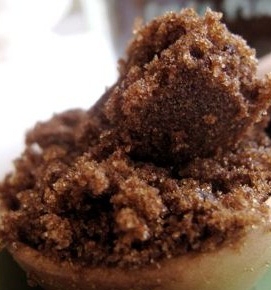If you're new here, you may want to subscribe to my RSS feed. Thanks for visiting!
Eating healthfully doesn’t have to mean that you have to skip dessert forever. (Otherwise, I’d be in BIG trouble!) Sugar has a definite place in your stockpile. The sweet stuff can add a sense of normalcy and a little touch of luxury in a bad situation.
It’s important to be particular about the source of your sugar, however. The white sugar that you get at most grocery stores is highly processed and any mineral content is lost in order to make the fine uniform crystals that we are all so familiar with. But it isn’t only nutritionally deficient. Table sugar comes from either sugar cane or sugar beets. An alarming 95% of the sugar beets grown in North America have been genetically modified to allow them to withstand the application of Monsanto’s pride and joy, Round-up pesticide. Sugar beets are beginning to keep pace with sugar cane as the source of sugar sold in North America. This means that you have a high chance of consuming GMOs whenever you eat something containing sugar unless that sugar has been carefully selected.
If you do buy white sugar, do your research and make sure it is made from 100% sugar cane. Although GMO sugar cane exists, it is not widely used.
Look for organic sugar when building your sugar stockpile. It’s definitely more expensive but if you are going to include it in your diet, you want to be sure you aren’t consuming a Frankenfood.
Next, look at the type of processing that your sugar has undergone. You want to select a sugar that has been refined as little as possible. Some options (generally sourced from sugarcane) are:

This stands for SUgar CAne NATural. This is one of the least processed options available. The sugarcane juice is mechanically extracted and then heated and cooled to cause little brown crystals to form. (The brown color comes from the molasses content.) You can use sucanat in any way that you would use traditional brown sugar.

This is sucanat taken a step further. The crystals are washed in a centrifuge (or turbine) to remove the surface molasses. This reduces the mineral content but makes turbinado sugar appropriate for things like lemonade, for example, where a higher molasses content would not be very appealing. Turbinado is often called “raw sugar”.
Muscavado Sugar
The three types of less processed sugars serve different culinary purposes, so all could have a place in the prepper’s pantry. An estimate for your sugar stockpile is 50 pounds per year, per person. Of course, this fluctuates based on your family’s diet so adjust accordingly.
Don’t forget other natural sweeteners. Not only do honey, maple syrup and molasses have distinct delicious flavors, they also contain vital minerals and have some natural medicinal values too.
- Blackstrap Molasses: Contains non-heme iron – can be used as a supplement for a person who is anemic. Always choose organic molasses – the heat processing it undergoes tends to concentrate the pesticides that were applied to the cane.
- Raw Honey: The list of medicinal uses for honey is nearly endless. It is a natural antibacterial, and because of this can be used topically for treating wounds or rashes. Honey is a great (and yummy) remedy for coughs and sore throats. To learn more about the benefits of raw honey, click here.
- Maple Syrup: This distinctively flavored sweetener is a great source of manganese and zinc, both of which help to boost the immune system.
An estimate for your sugar stockpile is 50 pounds per year, per person. Of course, this fluctuates based on your family’s diet so adjust accordingly. That sounds like a lot, but remember, each time you bake yeast bread, you’ll add a bit of sugar to proof the yeast. If you are a coffee or tea drinker, you’ll add a few spoonfuls daily to your beverage. On special occasions that require a treat, you may use 1-3 cups of sugar at a time. It takes 9 pounds of sugar to make 5 gallons of wine. Hmmm….50 pounds per person might not be enough after all!

















3 Responses
Awesome post! Keep it coming! XOXOX
We use organic Agarve Nectar. Yum!
We use organic coconut palm sugar. I think it’s ok, but if you or any of your readers know of a reason to not use it, I would like to know. Thanks!